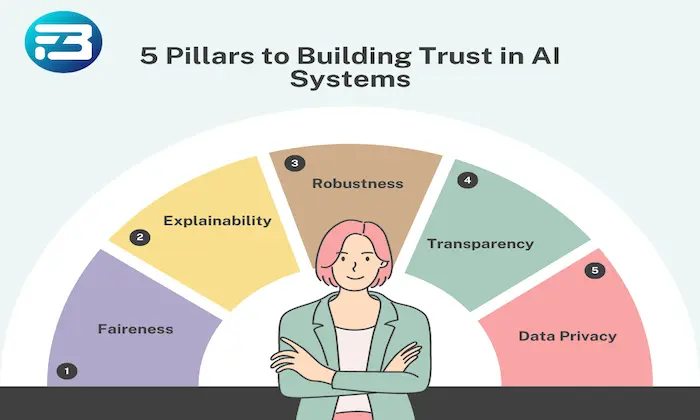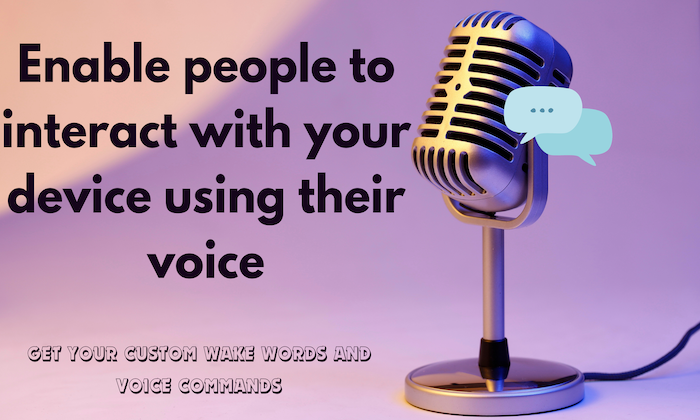How can I ensure responsible use of voice cloning data?
Voice Cloning
Data Privacy
Speech AI
The responsible use of voice cloning data is crucial for maintaining ethical standards and fostering trust in AI technology. As voice cloning becomes more prevalent, understanding how to navigate the complexities of data usage is essential for AI engineers, product managers, and researchers. This guide will help you approach this challenge effectively, with insights into best practices and key considerations.
Why Responsible Use of Voice Cloning Data Matters
- Ethical Considerations: Misuse of voice cloning can lead to identity theft, misinformation, and privacy violations. Respect for individuals' rights is critical in using their voices responsibly.
- Legal Compliance: Adhering to regulations like GDPR and HIPAA ensures that data collection and usage are legally sound. Non-compliance can result in severe penalties and damage to your reputation.
- Public Trust: Transparency and ethical standards build trust with users and stakeholders, which is crucial for the long-term success of voice cloning technologies.
Best Practices for Ethical Voice Cloning and Data Protection
1. Informed Consent: Obtaining informed consent from all participants is imperative. This involves clear communication about how their voice will be used and the duration of its usage. Here's how you can ensure it:
- Clear Communication: Offer straightforward information about the project, including its purpose and scope.
- Documentation: Use formal agreements specifying the consent terms and allowing contributors to revoke permission if desired.
2. Data Integrity and Quality:Maintaining high standards for data integrity is essential. Here are steps to ensure quality:
- Recording Standards: Use professional studio environments with high-quality equipment to capture clear audio. Adherence to industry standards, like a 48kHz sample rate and 24-bit depth, ensures clarity.
- Quality Assurance (QA): Implement thorough QA checks involving both automated and manual processes to detect audio defects or inconsistencies.
3. Privacy and Security:Protecting the privacy of voice data contributors is critical. Consider these measures:
- Data Encryption: Employ encryption methods for storing and transmitting voice data to secure it.
- Access Control: Limit data access to authorized personnel and establish data-sharing protocols that prioritize contributor privacy.
Real-World Implications and Use Cases
Responsible voice cloning can enable remarkable applications like virtual assistants, accessibility tools, and expressive storytelling in gaming. However, misuse can lead to serious ethical breaches. For instance, using cloned voices without consent can result in identity theft or spread misinformation. By learning from such scenarios, teams can implement responsible practices successfully.
Trade-Offs and Challenges in Voice Cloning
While responsible data practices are essential, they often come with trade-offs:
- Balancing Innovation and Ethics: Rapid development can clash with ethical considerations. Prioritizing responsible practices can actually foster innovation by building trust and reliability in the technology.
- Resource Allocation: Comprehensive consent processes and quality checks require time and resources. Allocating the right budget and personnel is crucial to maintain data quality and ethical standards.
Key Mistakes to Avoid in Voice Cloning Data Practices
- Neglecting Consent: Failing to obtain explicit consent can lead to legal repercussions and damage trust. Always prioritize this step.
- Ignoring Data Diversity: Relying solely on a narrow demographic for voice data can result in biased outputs. Strive for a diverse range of speakers to enhance robustness.
- Underestimating Transparency: Lack of transparency about data usage can lead to mistrust and backlash. Maintain open communication about your practices.
Final Thoughts on Ethical Voice Cloning Practices
In the evolving field of voice cloning, ensuring responsible data use is not just a regulatory requirement but a moral obligation. By establishing clear consent processes, maintaining data integrity, and prioritizing privacy, teams can harness the potential of voice cloning responsibly. These practices not only safeguard the rights of contributors but also foster innovation and trust within the technology landscape.
For AI-first companies looking to leverage voice cloning data responsibly, FutureBeeAI provides a trusted partnership. Our custom datasets are ethically sourced and tailored to meet high standards, ensuring your projects are both innovative and compliant. Reach out to explore how we can support your voice cloning initiatives.
Smart FAQs
Q. What are the key ethical concerns in voice cloning?
A. The primary ethical concerns in voice cloning include potential identity theft, privacy violations, and misuse for deceptive purposes. Informed consent and transparency are essential to mitigating these risks.
Q. How can I ensure diversity in my voice cloning dataset?
A. Include speakers from various demographics, covering different genders, ages, accents, and emotional tones. This enhances the quality of cloned voices and broadens applicability across user needs.
What Else Do People Ask?
Related AI Articles
Browse Matching Datasets
Acquiring high-quality AI datasets has never been easier!!!
Get in touch with our AI data expert now!








